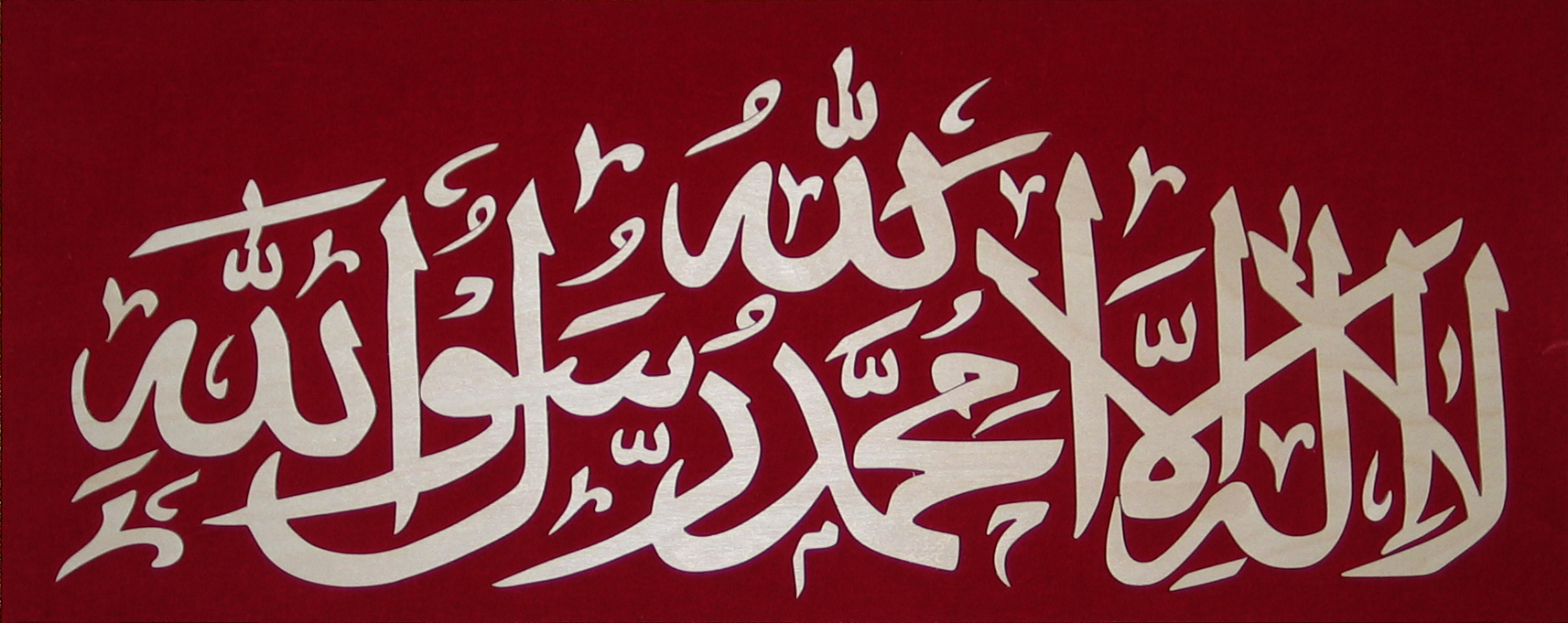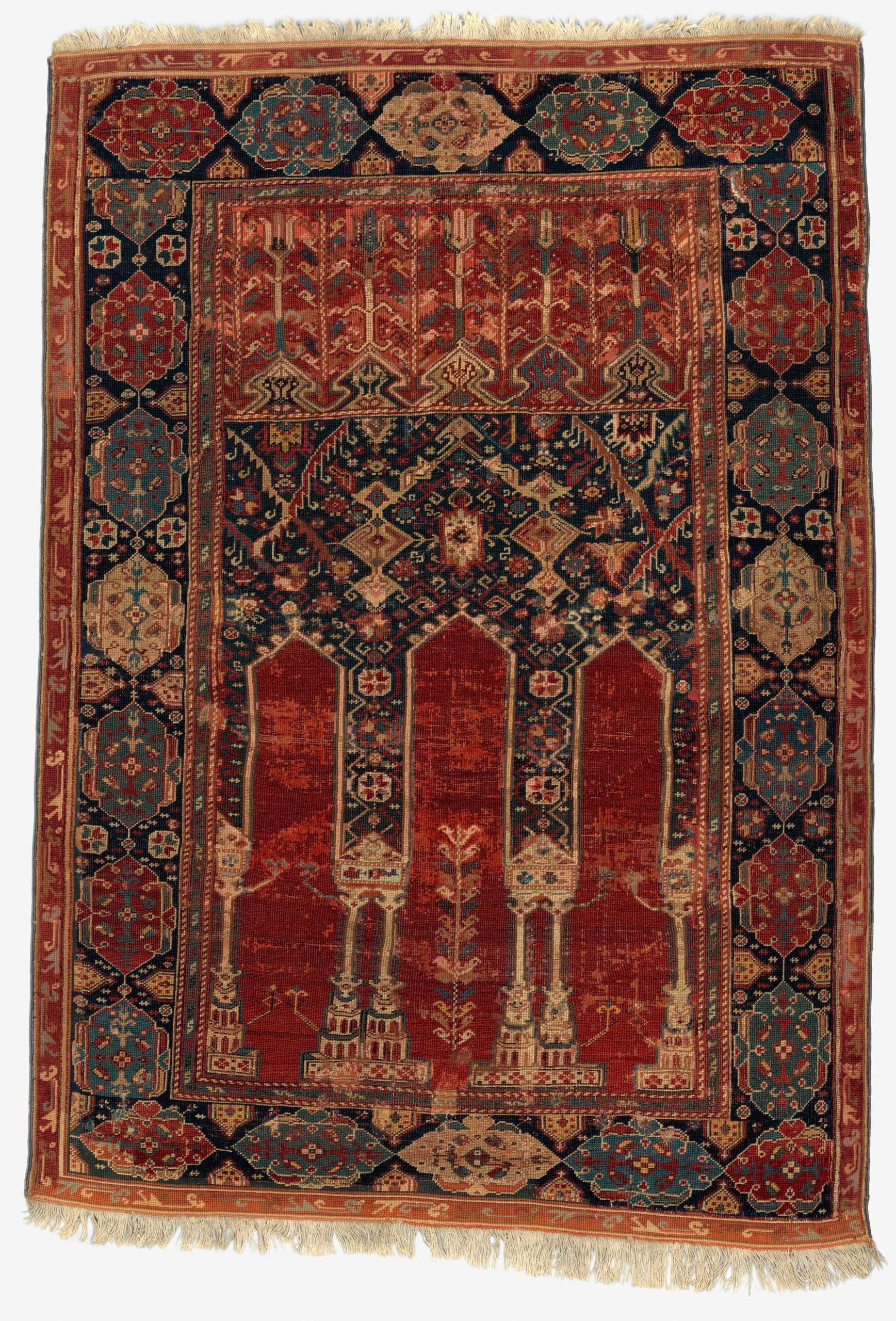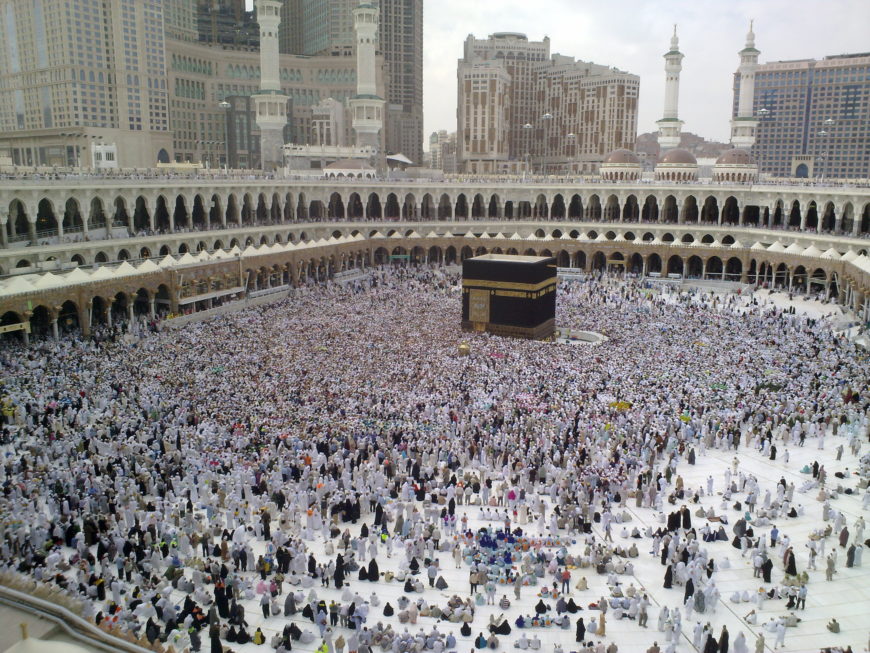Almost as soon as the Arab armies of Islam conquered new lands, they began erecting mosques and palaces, as well as commissioning other works of art as expressions of their faith and culture. Connected to this, many aspects of religious practice in Islam also emerged and were codified. The religious practice of Islam, which literally means to submit to God, is based on tenets that are known as the Five Pillars (arkan), to which all members of the Islamic community (umma) should adhere.

Shahada (photo: Mustafa and Aziza, CC BY-SA 2.0)
1. The profession of faith (the shahada)
The profession of faith (the shahada) is the most fundamental expression of Islamic beliefs. It simply states that “There is no God but God and Muhammad is his prophet.” It underscores the monotheistic nature of Islam. It is an extremely popular phrase in Arabic calligraphy and appears in numerous manuscripts and religious buildings.

Prayer Rug with Coupled Columns, early 18th century (attributed to Turkey, probably Ladik, Konya), wool (warp, weft and pile), symmetrically knotted pile, 172.7 x 121.9 cm (The Metropolitan Museum of Art, New York)
2. Daily prayers (salat)
Muslims are expected to pray five times a day. This does not mean that they need to attend a mosque to pray; rather, the salat, or the daily prayer, should be recited five times a day. Muslims can pray anywhere; however, they are meant to pray towards Mecca. The faithful are meant to pray by bowing several times while standing and then kneel and touch the ground or prayer mat with their foreheads, as a symbol of their reverence and submission to Allah. On Friday, many Muslims attend the mosque near mid-day to pray and to listen to a sermon (khutba).
3. Alms-giving (zakat)
The giving of alms is the third pillar. Although not defined in the Qu’ran, Muslims believe that they are meant to share their wealth with those less fortunate in their community of believers.
4. Fasting during Ramadan (saum)
During the holy month of Ramadan (the ninth month in the Islamic calendar), Muslims are expected to fast from dawn to dusk. While there are exceptions made for the sick, elderly, and pregnant, all are expected to refrain from eating and drinking during daylight hours.

Last day of Hajj. All pilgrims leaving Mina, many already in Mecca for farewell circumambulation of Kaaba (photo: Omar Chatriwala, CC BY-SA 4.0)
5. Hajj or pilgrimage to Mecca
All Muslims, who are able, are required to make the pilgrimage to Mecca and the surrounding holy sites at least once in their lives. Pilgrimage focuses on visiting the Kaaba and walking around it seven times. Pilgrimage occurs in the twelfth month of the Islamic Calendar.
Additional resources
More from Smarthistory on Hajj
More Hajj stories from the Asian Art Museum
More stories of the modern pilgrimage from the British Museum
Smarthistory images for teaching and learning:
[flickr_tags user_id=”82032880@N00″ tags=”IslamIntro,”]




